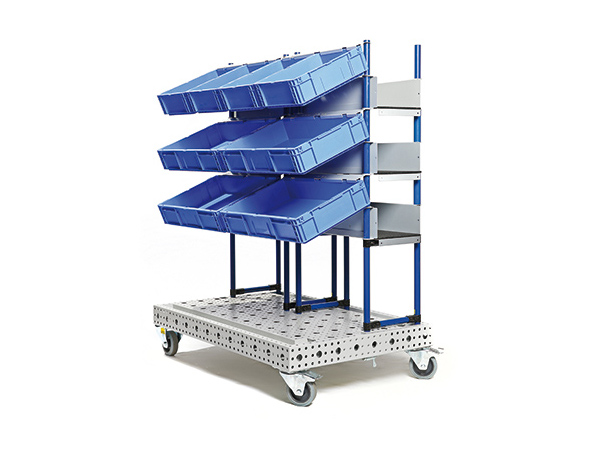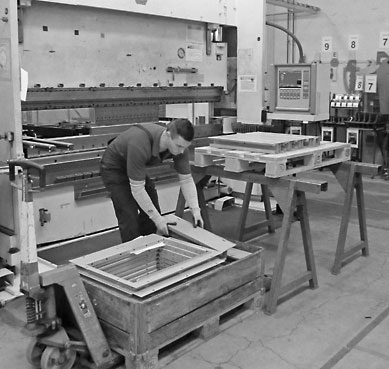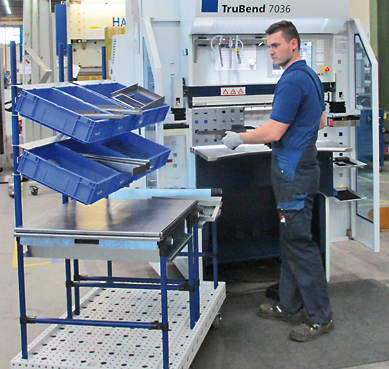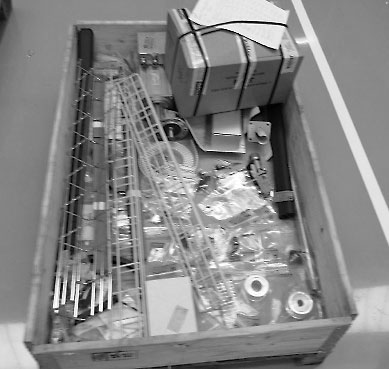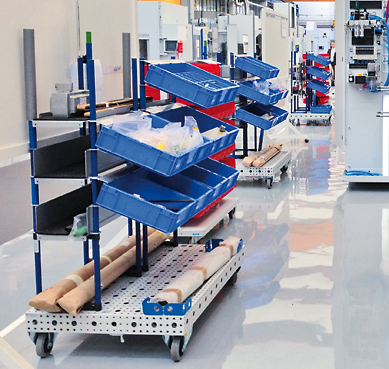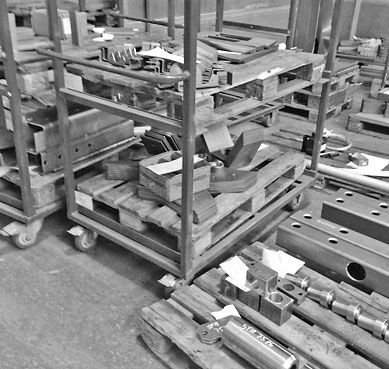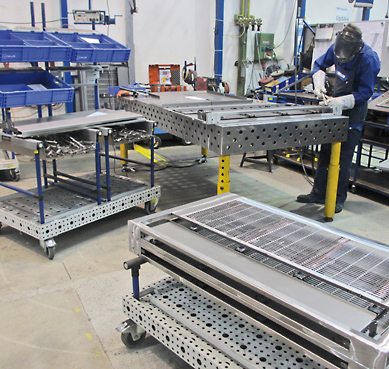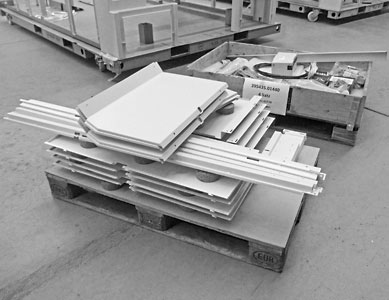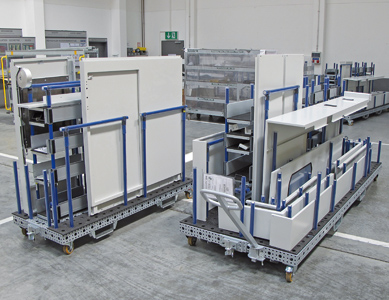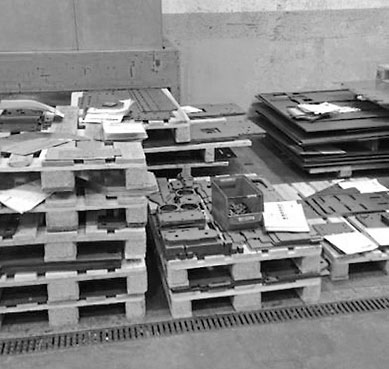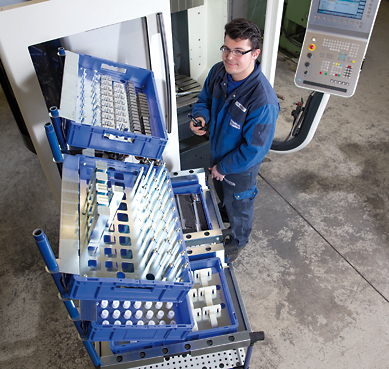4D lean work stations
The mobile 4D lean work station is an intralogistics trolley which offers a high level of flexibility and which can be used both as work station transport trolley. It can be moved from the warehouse, set as work station and equipped with all the necessary material for a specific day of project.
The mobile 4D lean work stations are based on the “Lean manufacturing” philosophy which brings the decision and responsibility closer to the ones which are effectively working. This approach allows them to concentrate on the productive activities and eliminates the unnecessary ones: identification of the transported pieces, of the assembly order, recovery of misplaced pieces and increasing the ergonomics by positioning the pieces at the optimum height and by eliminating the extra maneuvers. There are also eliminated the stops, the hesitations and questions before starting the work.
The studies show a productivity increase with an average of 20%, but also a quality increase due to the fact that operators become more familiar with how they organize and they have all the information at hand.
Most of the times, the materials are not sequentially supplied, so this platform allows a full mobility and eliminates the sophisticated planning.
The platform has predefined holes on which there can be mounted shelves, boxes, racking for special shapes, transportation walls, vertical sheets, hanging systems and panels with information and work documents. After finishing the activity, the work station can be easily dismembered and/ or reassembled. The standardized containers, structural modules and platforms allow the modification of any part, any time, no matter the process’s stage. This has as result the productivity increase.
The trolley represents the base. It has a stable format which can be adapted also to the internal logistic transportation system: handles for pushing, tow bars or protection sheaths for the forklift. This modular system is extremely flexible, can be built effortlessly and in a short time on various heights and shapes, exactly on the specific needs of the operators and their activity. They are focused on optimizing the processes and making them efficient, on creating direct working value.
A possible application of the lean workstations is using them as Kanban support. In this case, the trolley becomes the stand. The restocking time and the material consume set the number of necessary Kanban containers.
In the process of increasing the added value level, the mobile 4D lean work stations eliminate the useless distances within daily activity, sorting the materials, the unpacking, creating an ergonomic work environment. The materials are already individually organized on the trolley at the optimum level height. The order is always the same, this type of recurrence leading to visual automatism and work habits. This type of routine has as result the quick learning, conscious or not, and generates speed and confidence in activity. The organizing varies depending on the materials. The repetition is beneficial both for the logistic part and for the assembly one.

